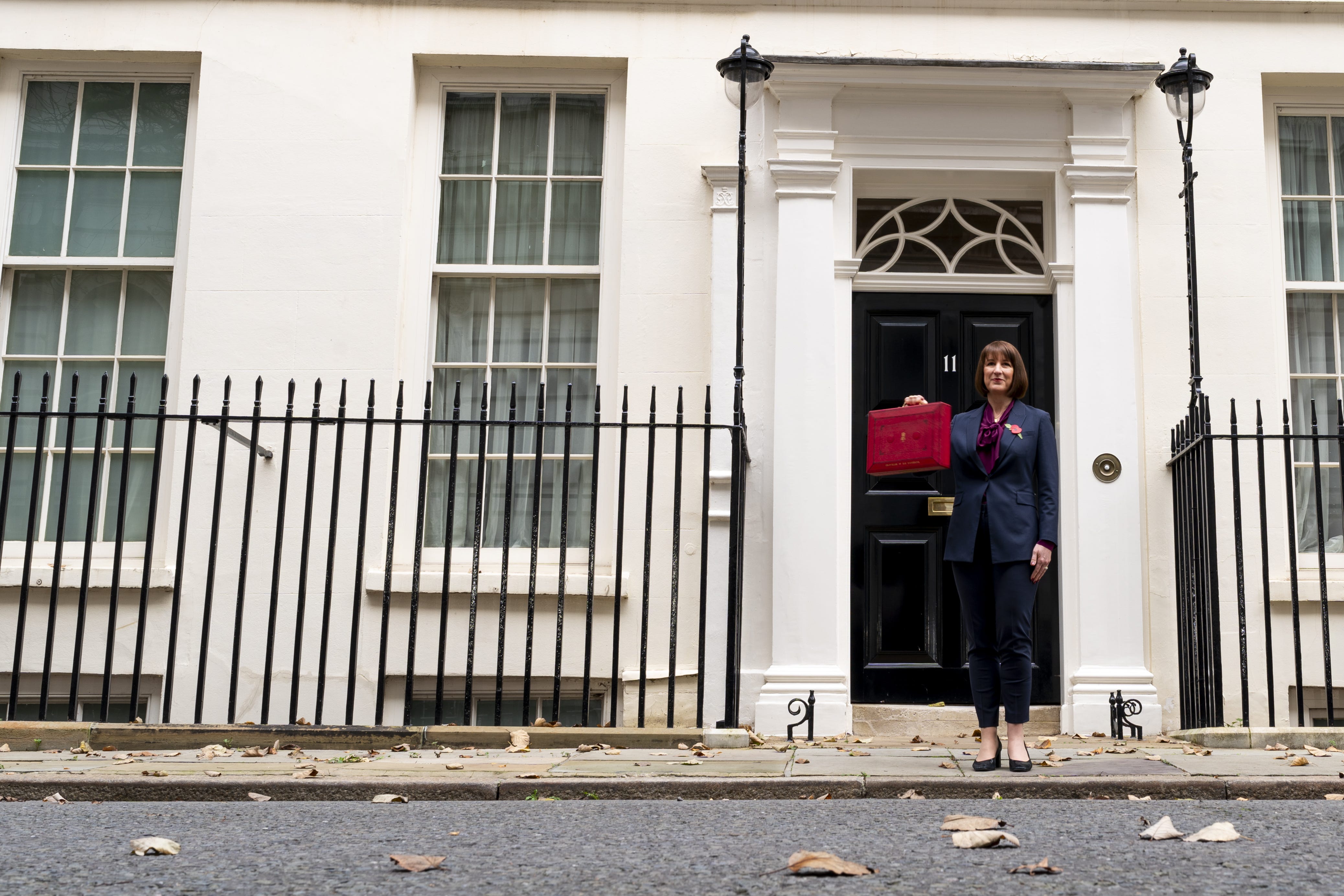Budget market reaction ‘very different’ from Liz Truss turmoil, minister insists
Treasury minister Darren Jones suggested the UK had ‘PTSD’ from Liz Truss’s mini budget, amid jitters from markets.

Your support helps us to tell the story
From reproductive rights to climate change to Big Tech, The Independent is on the ground when the story is developing. Whether it's investigating the financials of Elon Musk's pro-Trump PAC or producing our latest documentary, 'The A Word', which shines a light on the American women fighting for reproductive rights, we know how important it is to parse out the facts from the messaging.
At such a critical moment in US history, we need reporters on the ground. Your donation allows us to keep sending journalists to speak to both sides of the story.
The Independent is trusted by Americans across the entire political spectrum. And unlike many other quality news outlets, we choose not to lock Americans out of our reporting and analysis with paywalls. We believe quality journalism should be available to everyone, paid for by those who can afford it.
Your support makes all the difference.The UK is in a “very different world” compared to the turmoil which followed Liz Truss’s economic plans, a minister has said as the Government seeks to quell post-Budget market jitters.
The scale of extra borrowing in Rachel Reeves’ Budget – around £32 billion a year on average – saw yields on government bonds increase as the market responded to the Chancellor’s plans.
The value of the pound has also fallen against the dollar following Labour’s first Budget in more than 14 years.
But Darren Jones, Ms Reeves deputy at the Treasury, told Sky News that “markets always respond to budgets in the normal way”.
“I think we’ve all got PTSD from Liz Truss,” he added.
The Treasury minister compared Ms Truss’s decision to sack the Treasury’s chief official and snub an analysis of her spending by fiscal watchdog the Office for Budget Responsibility (OBR), with Labour’s plans.
He added: “Completely different in contrast to now: We’ve got verified reports from the independent Office for Budget Responsibility that say we meet our fiscal rules earlier than had been planned originally, 2027-2028, that those tough fiscal rules means there is a fiscal consolidation and that strong approach to public spending.
“We’re in a very, very different world.”
The senior minister conceded that the headline Budget tax rise in national insurance contributions (NICs) for employers would impact “working people”, following a similar admission by Ms Reeves.
The £25.7 billion change to employers’ NICs is expected to raise around £16.1 billion by 2029/30 as firms curb wage rises, cut hours and reduce profits – while public sector employers get compensation in their budgets for the change.
Asked by Sky News if it would impact workers, Mr Jones said: “Yes, but the question in the manifesto, the promise in the manifesto, was not to increase the rate of tax that employees pay in their payslip.
“It says that we make a promise to working people, that’s people who go to work and get a payslip, that we will not increase income tax or national insurance.”
The Resolution Foundation economic think tank has branded the increase a “tax on working people”, and said it will show up in their payslips in slower growth.
The OBR forecasts that by 2026-27, some 76% of the total cost of the NICs increase is passed on through lower real wages – a combination of a squeeze on pay rises and increased prices.
The measure could also lead to the equivalent of around 50,000 average-hour jobs being lost, the watchdog said.
Mr Jones also admitted to broadcasters that GPs and care homes will have to pay the NICs increase.
But he told BBC Breakfast some GPs “may end up in a better position than they were in before” because of extra investment across the NHS.
Despite an endorsement from the International Monetary Fund (IMF), financial markets have not been reassured by the Budget.
The yield – or interest rate – on a 10-year gilt, an indicator for the cost of state borrowing, hit 4.568% on Thursday afternoon, the highest point since August 2023, while the pound also weakened against the dollar.
Gareth Davies, the shadow exchequer secretary to the Treasury, told Sky News that market moves in the wake of the Budget are “embarrassing” for the Chancellor.
He said: “We have a new Labour government who promised change, who promised to stabilise markets, and what we saw yesterday was not a stable market environment.
“I think that is embarrassing for Rachel Reeves.”
Elsewhere, the Chancellor has welcomed a £50 million investment by medical supplier Accord into its Newcastle factory, which has been backed by the Government.
Ms Reeves will visit the company, one of the biggest chemotherapy drug suppliers in Europe, on Friday.